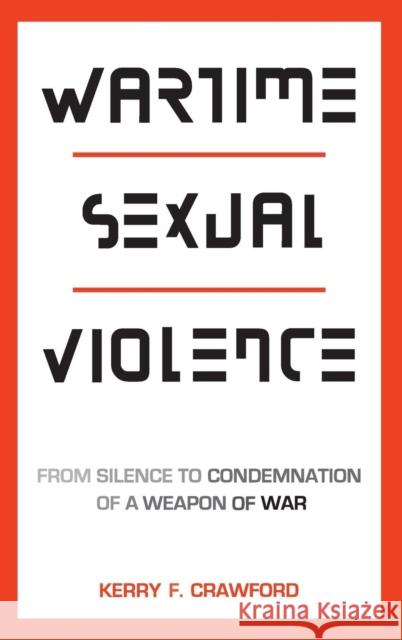Wartime Sexual Violence: From Silence to Condemnation of a Weapon of War » książka
Wartime Sexual Violence: From Silence to Condemnation of a Weapon of War
ISBN-13: 9781626164659 / Angielski / Twarda / 2017 / 224 str.
Wartime Sexual Violence: From Silence to Condemnation of a Weapon of War
ISBN-13: 9781626164659 / Angielski / Twarda / 2017 / 224 str.
(netto: 388,00 VAT: 5%)
Najniższa cena z 30 dni: 406,56
ok. 30 dni roboczych
Bez gwarancji dostawy przed świętami
Darmowa dostawa!
In armed conflict, systematic sexual violence is used all too frequently as a strategic weapon to terrorize an opponent's communities. Wartime sexual violence has transitioned rapidly from a neglected human rights issue to an unambiguous security concern on the agendas of powerful states and the United Nations Security Council. What has caused this transition, and what are its impacts? Kerry F. Crawford investigates through interviews and primary-source evidence the political impetuses for this change and the results of the securitization of sexual violence. Crawford explains how change started in the 1990s with the conflicts in the former Yugoslavia and Rwanda and then accelerated in the 2000s. Three case studies--the United States' response to sexual violence in the Democratic Republic of Congo, the adoption of UN Security Council Resolution 1820 in 2008, and the development of the United Kingdom's Preventing Sexual Violence in Conflict Initiative--illustrate that use of the weapon of war frame does not represent pure cooptation by the security sector. Rather, well-placed advocates have used the frame to push the anti-sexual violence agenda while simultaneously working to move beyond the frame's constraints.











